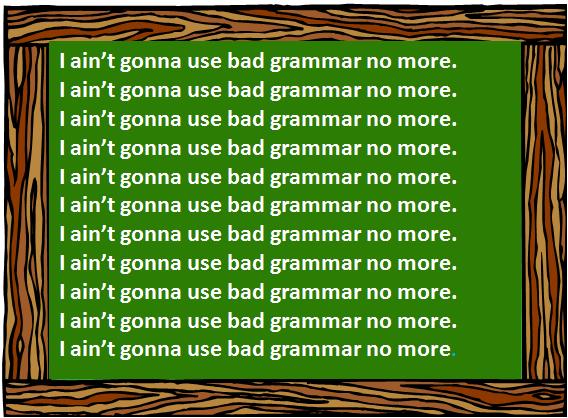When Bad Legal PR Grammar Ain’t a Bad Thing
Strong written communication skills are the lifeblood of any PR professional in all forms of communication ranging from press releases to blog posts to strategy memos. We know that there are dozens of important rules for written communication, and we know we are judged by our clients and the media on our writing style and adherence togrammar. And most of these rules make sense, but there are four “rules” you are better off disregarding:
- The rule against splitting an infinitive. This antiquated rule has no purpose and should be ignored. The best example of a split infinitive is the old Star Trek phrase, “to boldly go where no man has gone before.” The sentence is perfect and artfully crafted. Edited to avoid splitting the infinitive by moving the adverb “boldly” lessens the impact of the word and weakens the power of the phrasea. (Let’s not debate here the outdated use of the word “man” to refer to both sexes.)
- The strict rule against using contractions in formal work. There’s no such strict rule. Contractions are commonly considered less formal, and they probably aren’t appropriate in appellate briefs, but in a press release or other communications, they are preferred . Something like “We’ve seen no impact from on that decision,” can be more direct, powerful and effective than “We have seen no impact from that .” In a quote it is how people speak, and by the way, I just used a contraction a few sentences up.
- The mythological rule banning beginning a sentence with “and” or “but.” Again, grammarians and linguists say there’s no such rule. It’s true that a writer who does this all the time will often be perceived as having a rote and singsong style, but that’s only if you do this constantly and don’t vary your sentence structure. A highly regarded style manual says that as many as 10 percent of sentences in good writing begin with prepositions such as “and” or “but.” And this technique can help by adding emphasis to words or phrases that you want to stress by putting them at the beginning of a sentence, or are even effective to adding on to a point already made.
- The rule against ending a sentence with a preposition. The faulty argument for this one is because the word “preposition” is derived from a Latin word that includes “prae,” which means “before.” We don’t write in Latin; we write in English. Many sentences sound perfect when they end with a preposition and awful when they are rephrased to avoid the “problem.” Try: “The lawyer asked the witness where she came from.” The “correction” would be: “The lawyer asked the witness from where she came.” The lawyer would never ask that question that way. It would be a distraction. The powerful use of language and the most impactful communication makes a point, not distracts from that point?
Interested in learning how to improve your writing skills? Stay tuned for the announcement by the Legal Marketing Association’s Public Relations SIG for its first series of ‘Writing Workshops’ in 2016.





